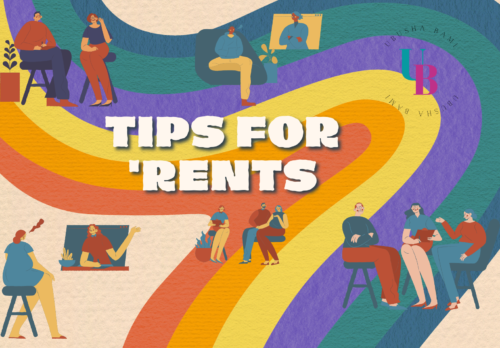
1) Set boundaries as early as possible – The adolescent years are characterised by exploration and experimentation. As such, it is on brand for your teen to push childhood boundaries as far as they can. Adjusting the boundaries of childhood to match the new developmental stage is important. It not only gives the teen a sense of orientation and realisation that they are in fact at a different place in their lives, but also grants you the opportunity to intentionally and critically think about where the new line is. Remember, how boundaries are communicated is just as important as what and where they are. These should be formulated and articulated as soon as possible, and reviewed as often as possible. Needless to say, this requires attentive and proactive parenting.
2) Freedom is necessary – Boundaries are not only meant as restraint. Although they can be used in this way where necessary, they are also what allows freedom and security. It is necessary to put in place boundaries that protect your child, but do not choke life out of them. Research has found that children who are overprotected, smothered to be frank, do not build up resilience, self-trust or social skills as quickly nor as adequatly as their peers. Freedom is necessary for the overall wellbeing of your teen, who will grow to be an adult. Age-appropriate boundaries protect them while they learn to handle themselves as autonomous, responsible beings.
3) Responsibility is not burdensome – Freedom and boundaries come with responsibility. It is wise to build positive associations with responsibility, to speak of it as honorable and noble, around your teen. Far too many young people want rewards but do not in fact want, and are often unwilling, to do the actual hard work and endure sacrifice associated with those rewards. Often this is because they have never had to be responsible for anything significant in their lives. They have lost or broken something, spoken an unkind word to a peer at school, and perhaps even crashed your car. Yet in these events, they were not held responsible for their actions and choices. It is no surprise that they have a limited sense of the reality that their actions change reality in some way, and therefore that is a super power. They do not realize that this super power requires that they move in the world in intentional ways. Knowing that their decisions have an impact empowers them rather than burdens them.
4) Consequences are both punishment and reward – Often when we speak about consequences we are referring to something negative or painful. But strictly speaking, consequence is more synonymous with effect or outcome than it is with punishment. Just as it is important to encourage your teen to be mindful of their actions and words, because they change the world and their lives in some way, it is important to make it clear that there is a link between action and outcome. Desired behavior should be rewarded explicitly to encourage repetition. Likewise, undesired behavior ought to be punished to discourage repetition. In both instances the teen must be aware of what they did (or did not do) that led them to the consequence they are now having to deal with. This is also why it is important to outline what the boundaries are prior to the behavior so that the teen is aware when they abide or transgress. It may not always be possible to draw a straight line between the behaviour and the outcome, but as far as is possible, outline the link. This will encourage discipline and a good use of one’s freedom.
5) The truth is always best – Sometimes you will be tempted to outright lie or conceal the truth from your teen. Unfortunately, the truth has a way of making its way to the surface without asking for permission to do so. It is important to work on a honesty-based relationship with your teen. Honesty will facilitate trust. In a trust relationship, boundaries are not taken as a compromise of individuality but rather as a way to orientate one into the big world within a space with a lot of support. In an honest parent-child relationship, freedom is not abused but considered a privilege that can be revoked. In a trust parent-child relationship, responsibility is not considered as a whip used by the parent forcing the child to grow up quickly, but rather as acknowledgement of a growing child who must be prepared gradually to be a functional, independent adult. In an honest relationship, when desired behaviour is rewarded there is no doubt that it is earned, just as when undesired behaviour is punished, it is clear what was done wrong and what can be done to remedy the situation.
What other tips do you have regarding the freedoms and boundaries you are noticing or teaching your teen? Do you have examples of the above in your relationship with your child? leave us a comment.